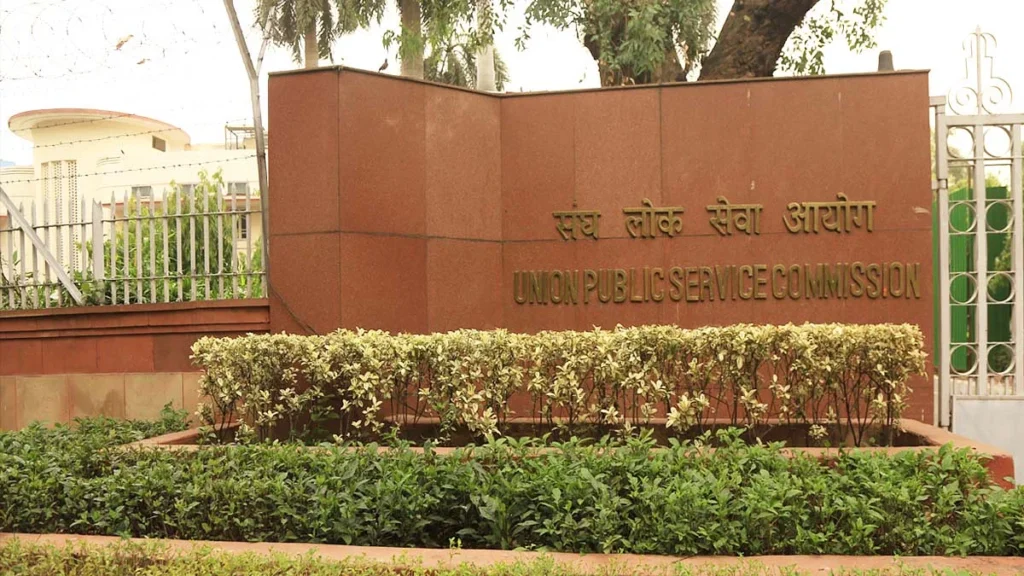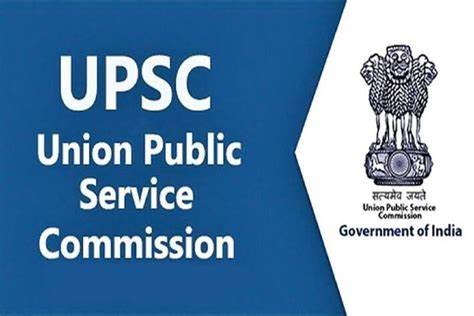INTRODUCTION:
The Medical Science syllabus for the UPSC examination is meticulously designed to assess a candidate’s understanding, aptitude, and application of medical knowledge in solving community health problems. This subject encompasses a vast array of topics ranging from basic human anatomy and physiology to more complex subjects such as genetics and pharmacology, reflecting the multifaceted nature of medicine. The curriculum is structured to evaluate not just the theoretical aspects but also the practical implications of medical science in public health, policy-making, and ethical considerations in medical practice. It is an excellent choice for those with a background in medical sciences, aiming to leverage their specialized knowledge in the pursuit of a career in the civil services.

Descriptive Syllabus for Medical Science in UPSC
Human Anatomy: This section delves into the intricate structure of the human body. Candidates will explore the organization and function of the skeletal, muscular, and nervous systems, alongside understanding the anatomical basis of disease and injury. Topics include the gross and microscopic anatomy of various organs and systems, embryology, and the anatomical aspects of general health practices.
Human Physiology: This covers the physiological processes governing the human body. Aspirants will learn about the mechanisms through which the body maintains homeostasis, including the functioning of the respiratory, circulatory, digestive, and renal systems. The physiological basis of health and disease, along with the regulatory mechanisms of various systems, forms a critical part of this section.
Biochemistry: Focused on the molecular level, this topic encompasses the chemical processes within and related to living organisms. Key areas include metabolism, enzymes, and the biochemical pathways crucial for maintaining life. It also covers the principles of molecular biology, genetics, and the role of nucleic acids in the synthesis of proteins.
Pathology: This segment addresses the study of disease processes, emphasizing the structural and functional changes in cells, tissues, and organs that lead to disease. It includes general pathology, mechanisms of disease, and the system-specific pathological processes. The diagnostic and clinical correlation of pathological findings is also emphasized.
Microbiology: Candidates will explore the biology of microorganisms, including bacteria, viruses, fungi, and parasites, their classification, structure, and function. The pathogenesis of infectious diseases, the body’s defense mechanisms, and the principles of vaccination and antimicrobial therapy are significant topics.
Pharmacology: This involves the study of drugs, their mechanisms of action, pharmacokinetics, pharmacodynamics, and therapeutic applications. Drug interactions, adverse effects, and the principles of prescription writing are also covered, alongside the pharmacological management of major diseases.
Forensic Medicine: This section focuses on the application of medical knowledge to legal issues. Topics include post-mortem techniques, determination of cause of death, forensic analysis of injuries, and legal responsibilities of physicians. Toxicology, including the effects and detection of poisons, is also a key area.
Social and Preventive Medicine: Emphasizing public health, this topic covers epidemiology, health promotion, and the prevention of disease. The social determinants of health, environmental health, occupational health, and the organization and delivery of health services form the core of this section.
General Medicine: This broad area covers the etiology, pathophysiology, diagnosis, and management of common medical conditions across all body systems. It includes internal medicine, pediatrics, and geriatrics, focusing on clinical examination, diagnostic techniques, and therapeutic strategies.
General Surgery: Candidates will learn about the principles of surgery, including wound healing, fluid and electrolyte balance, and surgical infection. It covers various surgical procedures, pre-operative and post-operative care, and the management of surgical emergencies.
Obstetrics and Gynecology: This section addresses the physiology and disorders of pregnancy, childbirth, and the postpartum period, along with the health of the female reproductive organs. It includes maternal and fetal health, family planning, and common gynecological problems.
Pediatrics: Focusing on the health and diseases of infants, children, and adolescents, this topic covers growth and development, pediatric diseases, and their management, including immunization, nutrition, and the psychosocial aspects of child health.
Ophthalmology: This involves the study of eye diseases, their diagnosis, and management. Topics include visual pathways, disorders of vision, and the principles of corrective lenses, along with surgical and medical treatments for eye conditions.
Otorhinolaryngology: The study of diseases of the ear, nose, and throat, this section covers the diagnosis and management of common ENT conditions, including surgical procedures relevant to the specialty.
Psychiatry: This section addresses mental health disorders, their classification, diagnosis, and management. It includes psychotherapy, psychopharmacology, and the social and legal aspects of mental health.
Dermatology: Focusing on the skin, hair, and nails, this topic covers the diagnosis and treatment of common dermatological conditions, including infectious, inflammatory, and neoplastic skin diseases.
Radiology: Candidates will learn about diagnostic imaging techniques, including X-rays, ultrasound, CT, and MRI, and their application in medical diagnosis and treatment planning.
Anesthesiology: This section covers the principles and practice of anesthesia, including pre-operative evaluation, anesthetic techniques, pain management, and the management of complications.
Orthopedics: This involves the diagnosis and treatment of musculoskeletal system disorders, including trauma, congenital anomalies, infections, and degenerative diseases.
Emergency Medicine: This final section covers the principles of managing acute medical and surgical emergencies, including trauma care, life support measures, and the rapid assessment and treatment of critical conditions.
The syllabus for the Medical Science optional subject in the UPSC (Union Public Service Commission) Civil Services Examination is vast and covers various aspects of medical science. Here’s a detailed outline of the syllabus:
Paper-I
1. Human Anatomy
- Gross anatomy
- Microscopic anatomy
- Developmental anatomy
- Neuro-anatomy
- Applied anatomy including radiological anatomy
2. Human Physiology
- Blood and body fluids
- Cardiovascular system
- Respiratory system
- Gastrointestinal system
- Nutrition
- Excretory system
- Endocrinology
- Reproductive system
- Nervous system
- Sensory organs
- Muscle physiology
- Immune system
3. Human Biochemistry
- Biological oxidation
- Enzymes
- Vitamins and minerals
- Carbohydrates
- Proteins
- Lipids
- Nucleic acids
- Biochemical genetics
- Metabolic pathways
- Molecular biology techniques
Paper-II
1. Pathology
- General Pathology
- Systemic pathology
- Hematology
- Clinical pathology
- Immunopathology
- Cytopathology
- Genetics in pathology
2. Microbiology
- General microbiology
- Systemic bacteriology
- Virology
- Mycology
- Parasitology
- Immunology
3. Pharmacology
- General pharmacology
- Autonomic nervous system
- Central nervous system
- Cardiovascular system
- Autacoids and their antagonists
- Drugs used in respiratory, gastrointestinal, and urogenital disorders
- Chemotherapy
- Endocrine pharmacology
- Rational drug therapy
- Toxicology
4. Forensic Medicine and Toxicology
- Medical Jurisprudence
- Forensic Pathology
- Forensic Medicine
- Clinical Toxicology
- Environmental Toxicology
5. Social and Preventive Medicine
- Concept of health, disease, and preventive medicine
- Epidemiology
- Biostatistics
- Nutrition and health
- Maternal and child health
- Family planning and population control
- Occupational health
- Health administration and planning
- International health
The syllabus is comprehensive and requires a deep understanding of various medical disciplines. Candidates opting for Medical Science as an optional subject in the UPSC examination need to study these topics thoroughly to perform well in the examination.
Certainly! Continuing from where we left off, here are the remaining topics for the Medical Science optional subject in the UPSC Civil Services Examination:
Paper-II (continued)
6. Social and Preventive Medicine (continued)
- Epidemiology of communicable and non-communicable diseases
- National health programs
- Health education and communication
- Health care delivery system
7. Obstetrics and Gynecology
- Anatomy and physiology of female reproductive system
- Antenatal care
- Normal labor and delivery
- Obstetric complications
- Postnatal care
- Medical and surgical disorders in pregnancy
- Gynecological anatomy and physiology
- Menstrual disorders
- Infertility
- Contraception
- Gynecological infections and tumors
8. Pediatrics
- Growth and development
- Nutrition in infancy and childhood
- Immunization
- Common pediatric disorders
- Neonatology
- Pediatric emergencies
9. Surgery
- Wound healing
- Shock
- Blood transfusion
- Fluid and electrolyte balance
- Burns
- Trauma
- Infections
- Surgical oncology
- Anesthesia
- Preoperative and postoperative care
- Common surgical procedures
- Transplantation
- Laparoscopic surgery
- Ethical and legal aspects of surgery
10. Ophthalmology
- Anatomy and physiology of the eye
- Refractive errors
- Diseases of the eyelids, conjunctiva, cornea, lens, uveal tract, retina, and optic nerve
- Glaucoma
- Squint
- Ocular injuries
- Ophthalmic surgery
- Community ophthalmology
11. Otorhinolaryngology
- Anatomy and physiology of the ear, nose, and throat
- Diseases of the ear, nose, and throat
- Tinnitus and vertigo
- Deafness
- Rhinitis and sinusitis
- Tonsillitis and adenoiditis
- Otitis media
- Laryngitis and tracheitis
- Foreign bodies in the ear, nose, and throat
- Otology and audiology
- Audiometry
- Speech disorders
12. Orthopedics
- Anatomy and physiology of bones and joints
- Fractures
- Dislocations
- Diseases of bones and joints
- Arthroscopy
- Orthopedic surgery
- Prosthetic surgery
This syllabus encompasses a wide array of topics in medical science, covering both theoretical knowledge and practical application across various medical specialties. Candidates are expected to have a deep understanding of these subjects to excel in the examination.
Certainly! Let’s continue with the syllabus for the Medical Science optional subject in the UPSC Civil Services Examination:
Paper-II (continued)
13. Dermatology
- Anatomy and physiology of the skin
- Dermatological examination and investigations
- Dermatological therapeutics
- Infections of the skin
- Eczema and dermatitis
- Psoriasis
- Lichen planus
- Acne and rosacea
- Urticaria and angioedema
- Skin tumors
- Connective tissue disorders
- Vasculitis
- Bullous disorders
- Tropical dermatology
14. Psychiatry
- Psychiatric history taking and mental status examination
- Classification of psychiatric disorders
- Schizophrenia
- Mood disorders
- Anxiety disorders
- Somatoform disorders
- Dissociative disorders
- Substance-related disorders
- Personality disorders
- Geriatric psychiatry
- Child psychiatry
- Psychopharmacology
- Psychotherapy
- Community psychiatry
15. Radiology
- Principles of radiological physics
- Radiological anatomy
- Radiographic techniques
- Contrast radiography
- Computed tomography (CT)
- Magnetic resonance imaging (MRI)
- Ultrasonography
- Nuclear medicine
- Interventional radiology
- Radiation safety and protection
16. Anesthesiology
- General principles of anesthesia
- Preoperative assessment and preparation
- Anesthetic agents and techniques
- Anesthesia for different surgical procedures
- Anesthesia for special populations (pediatric, geriatric, obstetric, etc.)
- Postoperative care and complications
- Pain management
17. Community Medicine
- Concept of health, disease, and health care
- Health care delivery system
- Epidemiology and biostatistics
- Demography and vital statistics
- Environmental health
- Occupational health
- Health education and communication
- Nutrition and health
- Maternal and child health
- Family planning and population control
- National health programs
- Disaster management
CONCLUSION:
The Medical Science syllabus for UPSC is a comprehensive encapsulation of the essential domains of modern medicine, designed to prepare aspirants for the multifarious challenges of public service in healthcare. It demands a deep understanding of medical principles, alongside an awareness of their socio-economic, ethical, and administrative applications. For aspirants, it represents not just an opportunity to excel by drawing on their academic and professional background in medicine but also to contribute significantly towards improving public health infrastructure and policy. Mastery of this syllabus promises not just success in the UPSC examination but also a rewarding career serving the nation’s health sector.

For Detailed Information ; CLICK HERE
For the 2024 UPSC Calendar; CLICK HERE